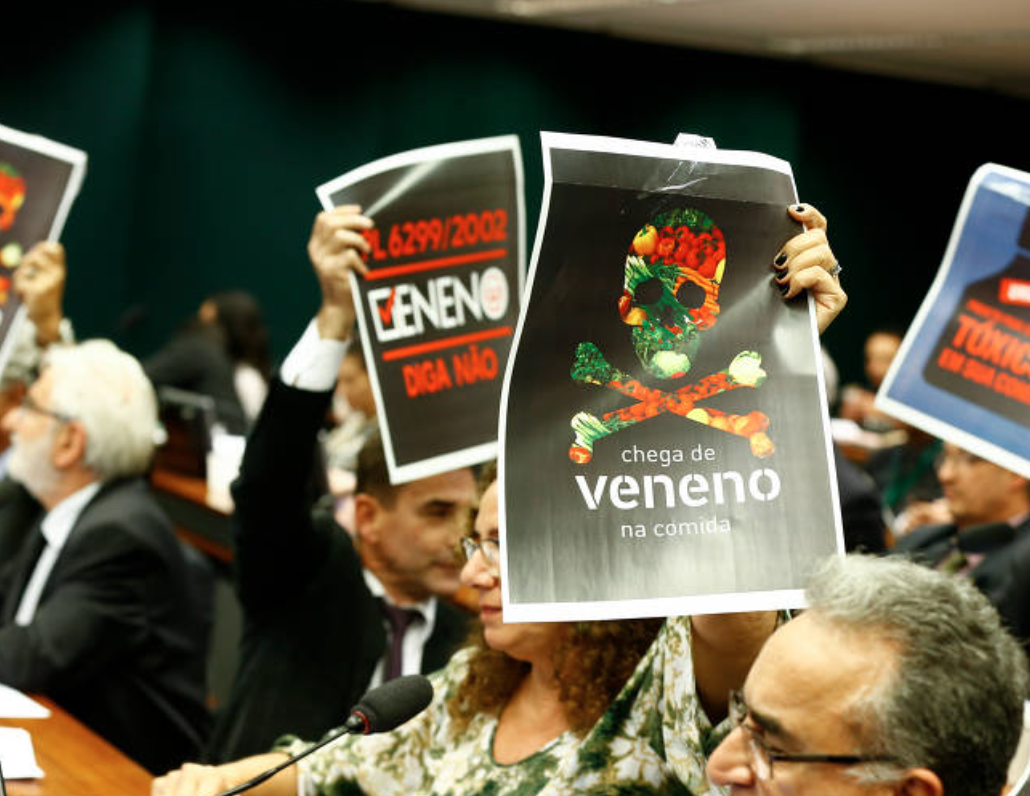Folha de S. Paulo: Two weights, two measures? (Op-ed by Patrícia Villela Marino and Marcelo Grecco)
From the original text (in Portuguese, published at Folha de S. Paulo in 17.03.2022. Access the original link here)
Patrícia Villela Marino
Founder and CEO Humanitas360 Institute and co-founder of Civi-co, a workspace that brings together civic-social entrepreneurs
Marcelo De Vita Grecco
Co-founder of The Green Hub, a startup accelerator focused on the legal cannabis market
We are going to disseminate with quality information this cultivation that has brought us together to bear real and sustainable fruits in a country that, in this moment of carelessness on all sides, needs care and not the bill 6.299/2002, the so-called “Poison Bill”.
According to the National Cancer Institute, agrotoxic are synthetic chemical products used to kill insects, larvae, fungi and ticks under the justification of controlling diseases and regulating the growth of vegetation in rural and urban environments.
Control of diseases and pests increases productivity and improves the visual quality of the products. But the disadvantages outweigh the benefits. The environmental damage to soil and water resources is terrible. In this sense, the damage seems profound and irreversible, especially to the water, fundamental for humanity and increasingly scarce. Likewise, soil contamination, source of food and perpetuation of life, is also fatal.
In the 6,299 bill proposal, the surveillance of agrotoxic regular use in Brazil is now restricted to the Ministry of Agriculture, changing the current regulation, which also has Anvisa and Ibama. Leaving this surveillance in the hands of just one body does not mean reducing bureaucracy, but deconstructing degrees of protection and governance. Changing the term “agrotoxic” to pesticide, as foreseen in the bill, does not reduce the risks.
Yes, governance, because whoever is responsible for super-harvests cannot regulate inputs to increase crops. The danger is that, because of profitability and political agendas, the public agent is permissive in the use of pesticides — the correct term, without euphemisms. It is important that we understand the need to keep other bodies in the surveillance of these products that are potentially dangerous to health and the environment. This task cannot be delegated to just one agent. After all, governance is security.
How did this bill go through Congress so quickly? And without the threat of a presidential veto, even though it has a real and measured toxic capacity with wide dissemination in studies, films and documentaries, such as Netflix’s “Fertile Soil”.
However, the same agility was not seen in another Bill, 399/2015, which deals with the cultivation of medical Cannabis in Brazil. Result of stories of unconditional love of mothers and fathers for their sons and daughters, who have not lost hope of offering health and quality of life to their children.
Professionals from various areas of knowledge, in addition to sympathetic and empathetic activists joined the fight. Later, science endorsed the ancestral knowledge contained in a plant, Cannabis and hemp, in their distinction, use and applications, describing processes and protocols that gave sustainability to the prophylactic craft, in a huge conjuncture of knowledge to serve public health.
All this democratic construction of manifestations in science, culture and the arts should be within the scope of public health, but it was not understood by public security (which has a monopoly on decisions). Even so, the discussion grew, but stopped in the National Congress, and was still under threat of a presidential veto.
Two situations, the subject of two projects with such different procedures that deal with public health. One, contaminates; the other, purifies and regenerates. It favors healing and offers dignity for its scientifically proven effects on diseases that limit human beings — in addition to protecting and regenerating the soil, at high risk of contamination by the leniency sponsored by the 6,299 bill.
What was not clear to parliamentarians? Would their political agendas and self-interest be driven by great efforts to convince the chemical industry and producers? Is it the lack of compassion and scientific interest to know the dilemmas of families who need Cannabis to reduce the suffering of their children?
Is it ignorance of the economic opportunities that hemp can generate in a country with high unemployment and minimal opportunities? Large crops do not reach the Brazilian table: they move large bank accounts of extensive monoculture farmers and foreign chemicals.
Oblivious to the congressional negotiations, the people, this year, have the power to vote. Let us not be uninformed, insensitive to the suffering of others, manipulated by prejudice, disinterested in new markets and new opportunities. We are voters and we count more than ever!

